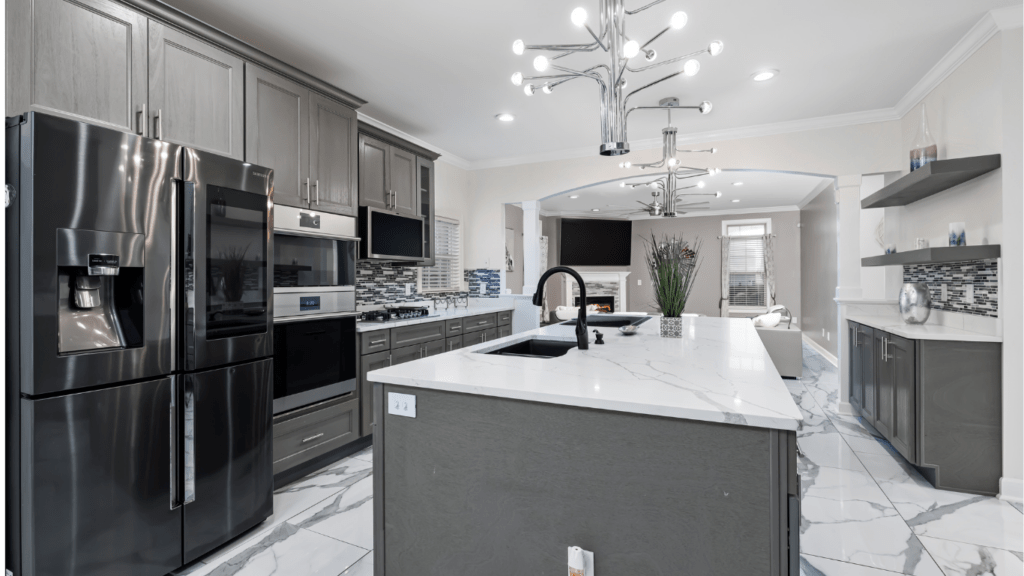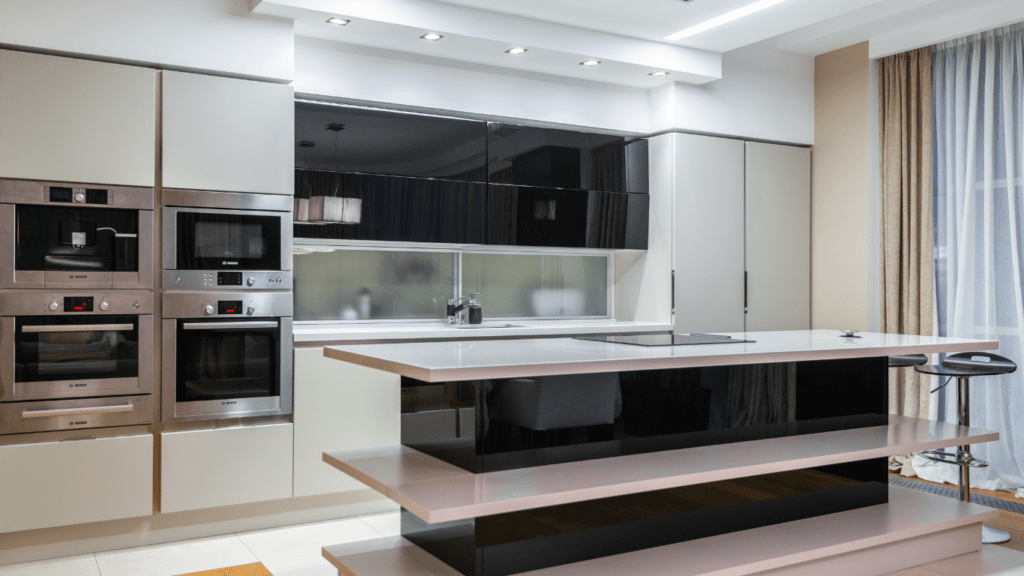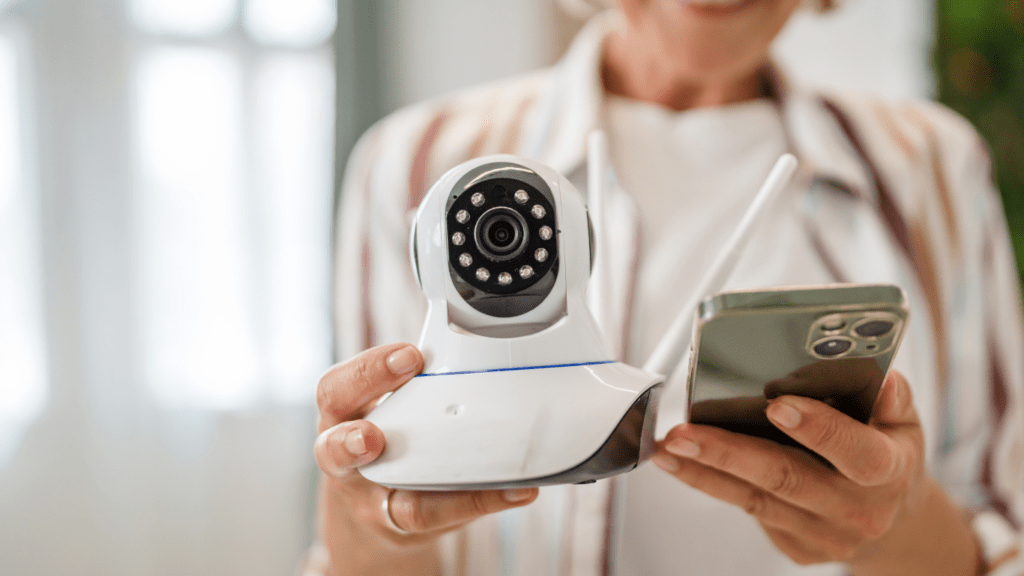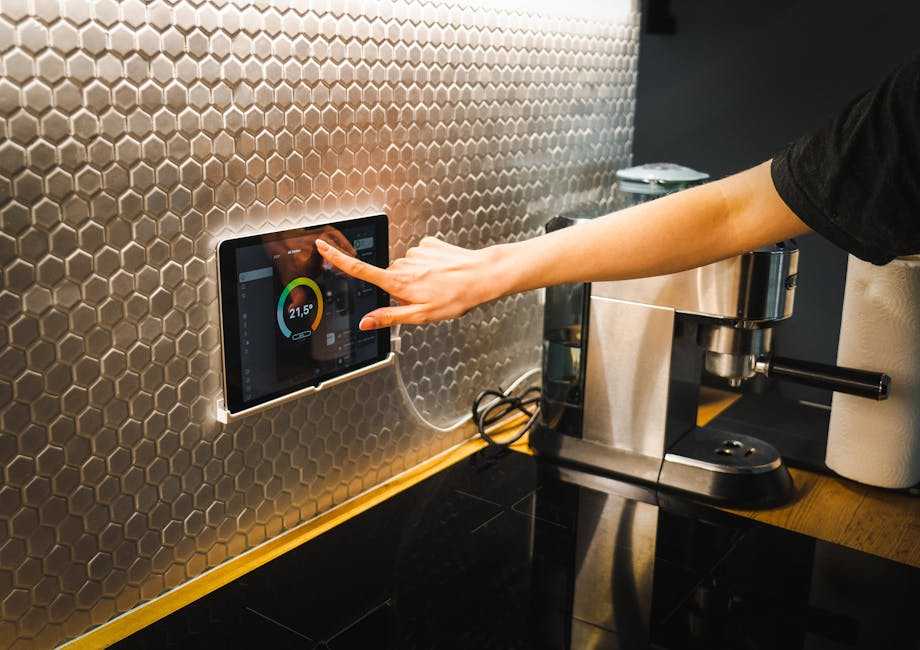The Rise of Smart Kitchen Gadgets
Smart kitchen gadgets have surged in popularity, driven by technological advances and a desire for efficiency. Devices like:
- smart ovens
- fridges
- dishwashers
utilize connectivity to offer unprecedented control and convenience. For instance, smart ovens allow preheating and monitoring through smartphone apps, ensuring perfectly cooked meals every time.
The rise of IoT (Internet of Things) in kitchens enables seamless integration of appliances. Connected ecosystems mean a smart fridge can suggest recipes based on its contents while a smart dishwasher optimizes water usage for eco-friendly cleaning. Consumers seek devices that save time and reduce effort, fueling this trend.
Voice assistants, like Alexa and Google Assistant, have become pivotal in smart kitchens. These gadgets don’t just set timers or play music; they control other smart appliances, streamline grocery lists, and even guide recipes step-by-step. Voice control enhances accessibility, making the kitchen a more user-friendly space for everyone.
The demand for health-focused gadgets also propels this trend. Smart scales, hydration trackers, and nutrition analysis tools provide real-time data, helping users make healthier choices. These gadgets offer personalized insights tailored to individual dietary needs, elevating the kitchen experience.
Ultimately, the rise of smart kitchen gadgets reflects a broader shift toward interconnected, optimized living spaces. Technology enhances everyday cooking and cleaning tasks, making homes more efficient and enjoyable.
Top Must-Have Smart Kitchen Gadgets
Smart kitchen gadgets make cooking easier and more efficient. From coffee makers to dishwashers, these devices elevate modern living.
Smart Coffee Makers
Smart coffee makers brew perfect cups. They connect to mobile apps, allowing users to customize brewing times and coffee strength. Brands like Keurig and Nespresso offer options with voice control and scheduling features.
Intelligent Refrigerators
Intelligent refrigerators offer more than cooling. They feature touch screens, internal cameras, and connectivity. Users can view the fridge contents from their smartphones, get expiration notifications, and access recipe suggestions. Samsung’s Family Hub and LG’s InstaView are popular choices.
Smart Ovens and Ranges
Smart ovens and ranges ensure precise cooking. They feature app controls, voice commands, and self-cleaning modes. Some models, like those from Bosch and GE, offer guided cooking and automatic recipe adjustments.
Smart Dishwashers
Smart dishwashers optimize cleaning. They include app connectivity, cycle customization, and voice control. Brands such as Siemens and Whirlpool provide models with diagnostics to monitor performance and water usage.
Connected Blenders and Food Processors
Connected blenders and food processors blend convenience with technology. Their smart settings and app integration allow for precise control and recipe creation. Notable models from Vitamix and Ninja support personalized blending programs and automated cleaning cycles.
Benefits of Using Smart Kitchen Gadgets

Smart kitchen gadgets offer numerous benefits, enhancing both convenience and efficiency for modern living. Here are key advantages:
Time-Saving Features
Smart appliances save time through automation and remote control. For example, smart ovens preheat remotely via smartphone apps, streamlining meal prep. Voice-activated assistants, like Amazon Alexa, enable hands-free control of multiple devices simultaneously.
Improved Cooking Precision
Intelligent gadgets ensure accurate cooking. Smart thermometers monitor food temperature precisely, preventing undercooking or overcooking. Smart scales provide exact measurements, crucial for baking and meal planning.
Enhanced Energy Efficiency
Many smart appliances optimize energy usage. Smart dishwashers adjust cleaning cycles based on load size, conserving water and energy. Smart fridges monitor energy consumption, adjusting cooling settings to reduce wastage.
Personalized Experiences
Customized cooking experiences are easier with smart gadgets. Smart coffee makers brew personalized drinks, adjusted through mobile apps. Intelligent ovens offer guided recipes and cooking suggestions based on user preferences.
Inventory Management
Smart fridges with internal cameras manage food inventory, reducing waste. They send alerts for expiring items and suggest recipes using available ingredients. This helps maintain a well-stocked and efficient kitchen.
Health Benefits
Health-focused gadgets promote better eating habits. Smart blenders and food processors offer tailored programs, enabling healthier meal prep. Nutritional scales help track calorie intake, supporting weight management goals.
Connectivity and Integration
IoT-enabled devices foster an interconnected kitchen environment. Appliances communicate seamlessly, creating a cohesive cooking experience. For instance, a smart oven can sync with a smart fridge to cook recommended recipes based on available ingredients. Voice assistants facilitate this integration, improving overall functionality.
Each benefit underscores the transformative impact smart kitchen gadgets have on everyday living, promoting a more effortless and efficient culinary experience.
Considerations Before Buying Smart Kitchen Gadgets
Choosing the right smart kitchen gadgets involves several important factors.
- First, compatibility with existing devices is crucial. Ensure new gadgets integrate seamlessly with current smart home systems, like Apple HomeKit, Amazon Alexa, or Google Assistant.
- Consider the connectivity options. Most smart appliances use Wi-Fi or Bluetooth. Choose gadgets that offer reliable connections and wouldn’t disrupt your network.
- Evaluate the usability of each gadget. User-friendly controls, intuitive interfaces, and comprehensive manuals are essential for a smooth experience. Reading customer reviews can provide insights into the practical usability of the device.
- Budget is also a primary factor. Smart gadgets come in a wide price range. Set a realistic budget and prioritize features that provide the best value for your investment.
- Security cannot be overlooked. Smart gadgets are part of the IoT ecosystem, making them potential targets for cyberattacks. Ensure the devices have robust security features, such as encryption and regular firmware updates.
- Durability and warranty are significant considerations. High-quality gadgets should be durable enough to withstand regular kitchen use. Check for warranty terms to safeguard against potential defects or malfunctions.
- Lastly, look at the energy efficiency of the gadgets. Energy-efficient devices can save money on utility bills and reduce environmental impact. Look for appliances with Energy Star ratings or similar certifications.
By considering these factors, you can select the best smart kitchen gadgets that will enhance your cooking experience and seamlessly integrate into your modern living space.
Future Trends in Smart Kitchen Technology
Innovative AI is reshaping how we approach kitchen tasks. AI-powered appliances can learn user preferences, automating tasks like adjusting cooking times. For example, AI ovens can recognize food types and suggest optimal cooking settings.
Voice Control integration is becoming more sophisticated. Devices now interact seamlessly with multiple appliances. Issuing commands to initiate cooking, preheat ovens, or even create shopping lists is becoming increasingly intuitive.
Advanced Connectivity in smart kitchens links every device, forming a cohesive system. IoT enables appliances to synchronize, providing updates and alerts. Imagine refrigerators suggesting recipes based on current ingredients while updating you on expiration dates.
Energy Efficiency remains a central focus. Manufacturers are developing gadgets that monitor and reduce energy consumption. Smart dishwashers and ovens adjust cycles and temperatures based on real-time data, conserving energy without compromising performance.
Personalized Nutrition is gaining traction, with devices offering tailored dietary advice. Smart kitchen scales and nutrition trackers analyze food ingredients, offering personalized health insights. These gadgets help users maintain healthier eating habits by recommending portion sizes and nutrient information.
Sustainable Cooking methods are emerging, focusing on reducing food waste and carbon footprints. Future innovations include smart composters and zero-waste cooking solutions. These tools aim to make kitchens more environmentally friendly and sustainable.
Smart Food Storage solutions are evolving, integrating advanced sensors. These gadgets manage food inventory, track freshness, and reduce waste. For instance, smart containers and vacuum sealers keep food fresher for longer, cutting down on spoilage.
Immersive Culinary Experiences are on the horizon, blending augmented reality (AR) and virtual reality (VR) with cooking. AR can guide users through recipes step by step, enhancing the cooking process. VR offers virtual cooking classes and experiences, bringing professional techniques to home kitchens.



 Real Estate Specialist
Summer Hodgkinson is the real estate specialist at Luxe House Maker, offering expert insights into the world of luxury property markets. With a background in high-end real estate sales, Summer has a keen eye for identifying the most exclusive and sought-after properties. Her in-depth knowledge of the global luxury real estate landscape allows her to provide readers with valuable advice on investment opportunities, emerging markets, and the latest trends in upscale living. Summer’s expertise ensures Luxe House Maker stays on top of the ever-evolving luxury property market, helping readers make informed decisions.
Real Estate Specialist
Summer Hodgkinson is the real estate specialist at Luxe House Maker, offering expert insights into the world of luxury property markets. With a background in high-end real estate sales, Summer has a keen eye for identifying the most exclusive and sought-after properties. Her in-depth knowledge of the global luxury real estate landscape allows her to provide readers with valuable advice on investment opportunities, emerging markets, and the latest trends in upscale living. Summer’s expertise ensures Luxe House Maker stays on top of the ever-evolving luxury property market, helping readers make informed decisions.
